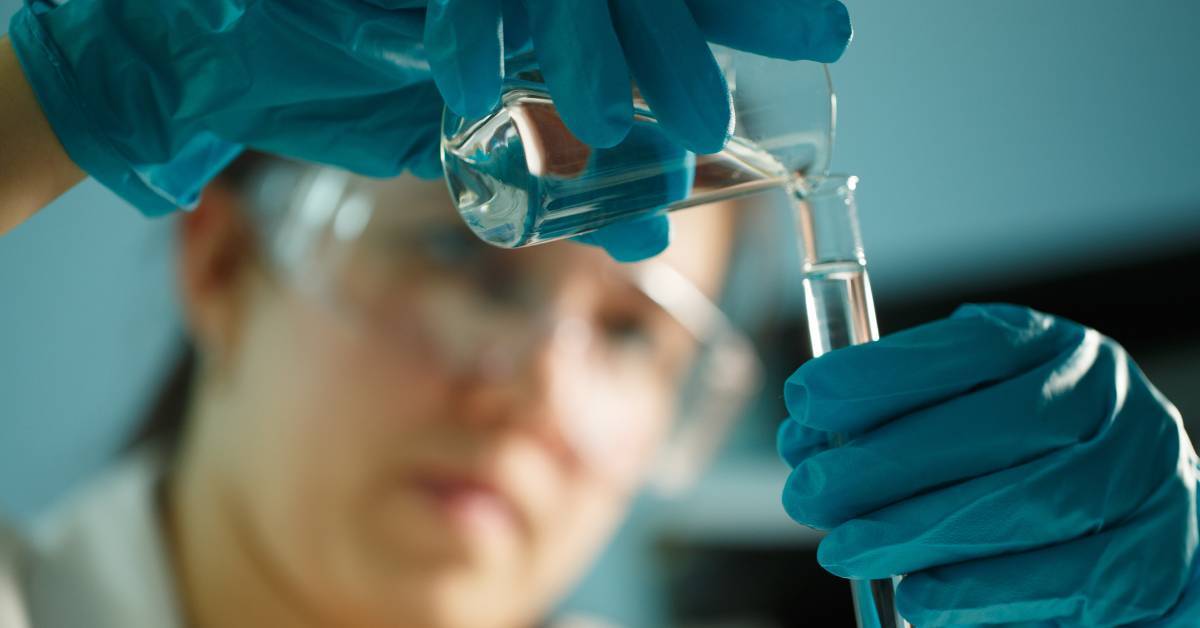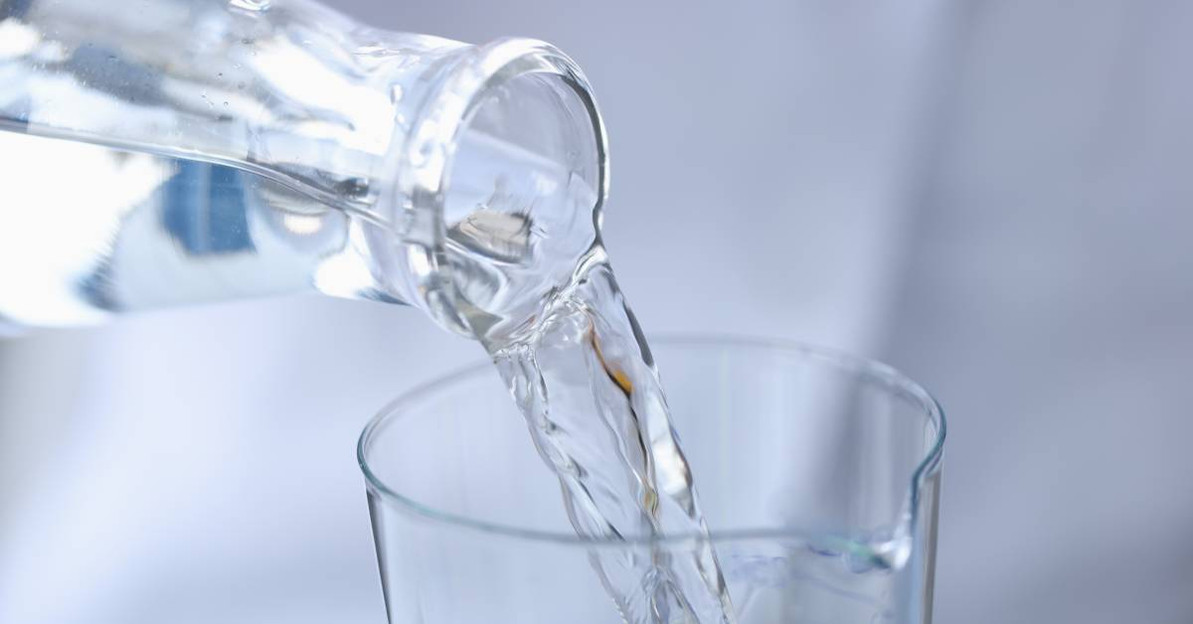The Role of Sterile Water in Lab Experiments
Water is essential in laboratory experiments, playing a critical role across various scientific applications. Sterile water is among the most important types of water a lab uses, as it ensures that experiments perform optimally, free from contamination risks that could compromise results.
The use of sterile water spans fields such as biology, microbiology, chemistry, and medical research, underlining its versatility and reliability. Sterile water eliminates all viable microorganisms, ensuring purity and sterility, making it ideal for delicate experimental processes where the slightest contamination could skew data or endanger sensitive biological systems.
Beyond its sterility, it also removes impurities, making it suitable for precise scientific applications. This guide explores the role of sterile water in lab experiments, examining its characteristics, preparation methods, and importance.
What Is Sterile Water?
Sterile water is a form of purified water that underwent a rigorous sterilization process to eliminate all forms of microbiological life, including bacteria, viruses, fungi, and spores. Unlike distilled or deionized water, which primarily focuses on removing non-biological contaminants, sterile water meets the strict standards required for medical, laboratory, and pharmaceutical applications.
This sterilization process is critical for maintaining a controlled environment in procedures or experiments involving microorganisms, cellular cultures, or tissues, where a small trace of biological contaminants could compromise results. Its versatility and purity also make sterile water an essential component in clinical settings, including wound irrigation, medical device rinsing, and the preparation of injectable medications.
Sterile Water Preparation
Preparing sterile water involves a meticulous process to ensure its safe use for critical applications. One common method is autoclaving, which uses high-pressure steam at elevated temperatures to kill bacteria, viruses, and other contaminants effectively.
Another method involves filtration, where water passes through ultra-fine filters that physically remove particles and microorganisms. Chemical sterilization introduces hydrogen peroxide, ozone, or another sterilizing agent to destroy pathogens.
Sterile Water in Biological Research

Sterile water is important in biological research where maintaining contamination-free environments is critical for reliable results. Its applications are vast, ranging from the preparation of culture media to the dilution of biological samples and the cleaning of laboratory equipment.
The sterility of this water ensures that no foreign microorganisms or contaminants damage sensitive experiments, safeguarding the integrity of research processes. Using sterile water is especially crucial when studying microbial growth, conducting molecular biology experiments, or performing tissue culture.
Applications in Microbiology
Sterile water is essential for preparing culture media, dilutions, and reagents, as well as cleaning and rinsing laboratory equipment to prevent cross-contamination. This stringent requirement for sterility ensures that experimental conditions remain controlled, allowing microbiologists to maintain the integrity of their research and achieve reproducible outcomes.
Without sterile water, microbiological studies would face significant hurdles, as contaminants could obscure observations, compromise data, and ultimately lead to incorrect conclusions. Through its central role in maintaining a contamination-free environment, sterile water is indispensable to advancements in microbiological research and diagnostics.
Sterile Water in Chemical Experiments
Sterile water is especially important in highly sensitive procedures involving high-purity laboratory chemicals, where even the slightest contamination might compromise the entire process. This water ensures that reactions proceed as intended without the risk of microbial interference in biochemical assays or advanced material synthesis. Sterile water enables researchers to achieve reproducible and reliable data by maintaining the integrity of experimental setups, solidifying its indispensable role in various domains of scientific inquiry.
Importance in Medical Research
Sterile water is essential in medical research to ensure the integrity, safety, and accuracy of various procedures and experiments. It is a critical component in the preparation and dilution of drugs, maintaining their stability and effectiveness for clinical applications. It is indispensable in the cleaning and sterilization of surgical instruments, eliminating any risk of contamination.
It hydrates cells, tissues, and other biological samples during laboratory analyses, creating optimal environments for precise examination and experimentation. The role of sterile water in lab experiments is foundational to achieving reliable and reproducible results, cementing its importance in research and clinical settings, from pharmaceutical production to biomedical investigations.
Sterile Water in Environmental Science

Sterile water plays a crucial, multifaceted role in environmental science, serving as a foundational element in various research and analytical processes. It provides a contamination-free baseline for accurately measuring pollutants, calibrating sensitive instruments, and testing water quality in diverse ecosystems.
Sterile water enhances the precision of studies focused on microbial ecology, toxicology, and contaminant transport by blocking irrelevant organisms or particles. Environmental scientists rely on it to dilute samples during experimentation, enabling controlled conditions that lead to reliable and reproducible results. Its use supports the integrity of environmental research, contributing to deeper insights into ecosystem health and sustainable resource management.
Ensuring Reproducible Results
Reproducibility is a fundamental principle of laboratory experimentation, ensuring that others can consistently replicate and verify scientific results. Contaminated or impure water in experiments introduces a significant source of variability, undermining the reliability of results and complicating efforts to draw accurate conclusions.
By using sterile water, researchers can eliminate one major factor of uncertainty, enhancing the consistency and repeatability of their studies. This reduction in variability strengthens the scientific rigor of the experiment and improves the findings’ overall credibility, enabling the scientific community to build upon robust and reliable data.
Sterile Water in Cell Culture and Molecular Biology
Sterile water plays a critical role in cell culture and molecular biology by ensuring an environment for growing and studying cells is free from contaminants. It is useful for preparing culture media, which serves as the nutrient-rich base for cultivating cells under controlled conditions.
Sterile water is essential for DNA extraction, PCR amplification, and the preparation of buffers, ensuring enzymatic reactions remain uncontaminated and accurate. The water’s sterility minimizes the risk of introducing unwanted microorganisms or impurities, maintains the integrity of sensitive biological experiments, and enables reproducible, high-quality research outcomes.
Sterile Water in Clinical and Medical Settings
Sterile water is efficient for wound irrigation, helping to cleanse injuries and reduce the risk of infection. It is essential for medical professionals to prepare and dilute medications with sterile water for intravenous administration, ensuring the solutions remain free from contaminants.
It is also essential during surgical procedures to rinse instruments and tissues and maintain a sterile environment to prevent postoperative infections. In respiratory therapy, humidifiers and nebulizers are essential to assist patients with breathing treatments, and promote effective and safe care in hospital and outpatient settings.
Sterile water is not merely a supporting element in laboratories but a foundation for good science. It intersects nearly every domain and guarantees the purity and reliability needed for scientific breakthroughs.
By integrating high-quality laboratory chemicals with sterile water and adhering to strict preparation standards, researchers can confidently pursue their investigations with minimal concerns about contamination.
Recent Posts
-
The Role of Desiccants in Protecting Hygroscopic Chemicals
Hygroscopic chemicals readily absorb moisture from the surrounding environment, leading to compromis …May 19th 2025 -
All About Pairing Containers With Corrosive Substances
Handling corrosive substances is critical in many industries, including manufacturing, pharmaceutica …May 12th 2025 -
Why Solvent Purity Is Crucial in the World of Chemistry
When producing accurate and reliable results in chemistry, solvent purity is non-negotiable. Many se …May 11th 2025




